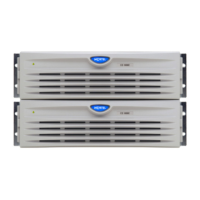© 2016 Avaya Inc. All rights reserved. NDA Confidential; use pursuant to your agreement.
Release Notes for Avaya Scopia® XT Series What’s New | 60
Figure 38: Alert for an Expired Certificate
Figure 39: Configure Alert before Expiration
Verify Certificate Revocation Status
In this version, you can configure how to check for certificate revocation status. You can choose the
policy for certificate revocation checking, offering the following options:
[GUI] CONFIGURE >ADVANCED>PROTOCOLS>SIP>ADVANCED>
[WEB] ADMINISTRATOR SETTINGS> PROTOCOLS>SIP>ADVANCED>
Verify Certificate Revocation:
o Yes always: certificate revocation checking is performed. Indeterminate results are
treated as failures;
o Yes if possible*: (default) certificate revocation checking is performed. Certificates
which are known to be revoked will be treated as invalid, but connections will be
allowed to proceed if the result of the revocation check is indeterminate due to
missing revocation information in the certificate or a failure to check the revocation
status (i.e. no response from the OCSP responder, inability to download the CRL,
etc.);
o No: certificate revocation checking is not performed;
Figure 40: Verify Certificate Revocation
Certificate Validation Options
In this version, you can configure how to perform certificate hostname and key/extended key usage
validation. You can choose the policy for certificate validation, offering the following options:
[GUI] CONFIGURE >ADVANCED>PROTOCOLS>SIP>ADVANCED>
[WEB] ADMINISTRATOR SETTINGS> PROTOCOLS>SIP>ADVANCED>
Certificate Hostname Validation:
o Accept Validated Only*: (default) only certificates with validated hostnames are
accepted;

